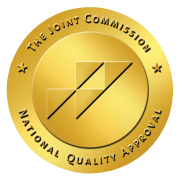Mental Health and Nutrition
Have you ever heard of our gut being our ‘second brain?” We have what’s called the Gut-brain connection. It’s so powerful that just thinking about eating can change our stomach acid and release juices in preparation for food. The cons of this powerful connection is how poor mental health affects the gut. The sayings “my stomach is in knots” or “I have butterflies in my stomach” are ways we describe the physical effects of anxiety. Having anxiety actually increases our stomach acid and wreaks havoc on digestion. Mental health and nutrition go hand-in-hand.

Mental Health and Nutrition Connection
The brain and gastrointestinal tract are connected with the vagus nerve. The vagus nerve is an essential part of the parasympathetic nervous system, which is our “rest and digest” state. Having food in our stomach will activate this state. However, when a person is in a stressed state, caused by either physical or emotional stress, their parasympathetic function shuts off and turns on the sympathetic function, known as “fight or flight”. When we eat food while our body is in the sympathetic function, digestion is virtually turned off. This leads to slow gastric emptying and storing energy rather than using it. A person with depression, anxiety, or any other mental health condition, may have the sympathetic function turned on, more often than not. The best thing to do before eating if you are in an anxious state, is a few mindful exercises, like the ones I have listed below.
Serotonin
Serotonin is a hormone and chemical messenger that helps us feel calm, reduces anxiety, helps us sleep and also with GI mobility. 90% of serotonin is actually produced in the gut and we produce the precursors for serotonin and dopamine through amino acids (food!).
Tyrosine
Tyrosine is the precursor for dopamine. High tyrosine foods include beef, pork, fish, chicken, tofu, milk, cheese, beans, seeds, nuts, and whole grains.
Tryptophan
Tryptophan is the precursor for serotonin. High tryptophan foods include chicken, turkey, red meat, pork, tofu, fish, beans, milk, nuts, seeds, oatmeal, and eggs. Making sure you are getting a wide variety of foods in your diet will help with your serotonin and dopamine production.
Nutrition and Mental Health Together
Nutrition plays such a huge role in mental health because they feed off each other (pun intended!) If our anxiety and depression is low, our stomach acid is being regulated and we are able to enter the parasympathetic function when eating. Thus, having the ability to digest properly and utilize all of the consumed energy for our metabolic function.
If our anxiety and depression is high, not only will we not be digesting properly, but we will also be craving foods higher in carbohydrates for a quick serotonin release. This could lead into disordered eating behaviors such as eating when we are not hungry and not in tune with our hunger/fullness cues.
Balanced nutrition is the goal for everyone. A simple way I like to help people get on track with balanced eating, is educating on macronutrients vs micronutrients. There are 3 macronutrients: carbohydrates, proteins, and fats.
There are a ton of micronutrients so we will just call these our fruits and vegetables. At each meal, there should be a representative from each category of macronutrient and at least one fruit or vegetable. For example: in a burger, the bun is the carbohydrate, the patty is the protein, the spread or sauce is the fat, and the lettuce/onion/tomato is the micro nutrient. So yes, a burger is a balanced meal!
Mindfulness exercises before eating:
- Sit straight up in a chair with feet firmly planted on the ground
- Complete a few rounds of breathing techniques such as boxed breathing. Here’s a how.
- Check in with your hunger/fullness and anxiety
- Repeat some affirmations
References:
https://www.health.harvard.edu/diseases-and-conditions/the-gut-brain-connection
https://www.ncbi.nlm.nih.gov/books/NBK553141/
Hanna McAlister, RDN




